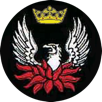Family Name History

CAIN
There are two possible origins of the English surname Cain. It could be of patronymic origin, being one of those names based on the first-name of a father or mother. In this case it is derived from the personal name "Kane or Cain"; thus the original bearer was "son of Kane". Alternatively, it could be of local origin, being one of those names derived from the place where a man once lived or where he once held land. In this instance it would be derived from the town of "Caen" in Normandy (France).
Records of the name in England date back to the thirteenth century where one Thomas Kayne appeared in the Assize Rolls, Lincolnshire, 1260. The name also appears in the Isle of Man and in Ireland. The Manx form of the name is a contraction of MacCalhain, "son of Cathan", from "cath" meaning a "battle". The name is recorded there as early as 1408 in the form McKane and in 1586 in the form Cain. In Ireland the name is found in County Mayo and also in Ulster. The name appeared in the United States during the nineteenth century, as there is record of one Michael Kane from Ireland who sailed to Boston aboard the Atlantic in 1804.
Notable bearers of the name include one James Cain (1892-1977), an American author and journalist. He achieved great success with his novels "The Postman Always Rings Twice" and "Mildred Pierce", both of which have been made into films.
***
BLAZON OF ARMS : Sable, a phoenix argent.
Translation : The colour sable (black) denotes Constancy and sometimes, but more rarely, Grief. The phoenix was often used as an emblem of the Resurrection. Argent signifies Peace and Sincerity.
CREST : A demi antelope per fesse azure and argent collared and armed or.
Translation : An antelope represents Purity, Fleetness and Solitary Life.
MOTTO : Esta quad esse videris.
Translation : Be what you seem to be.
